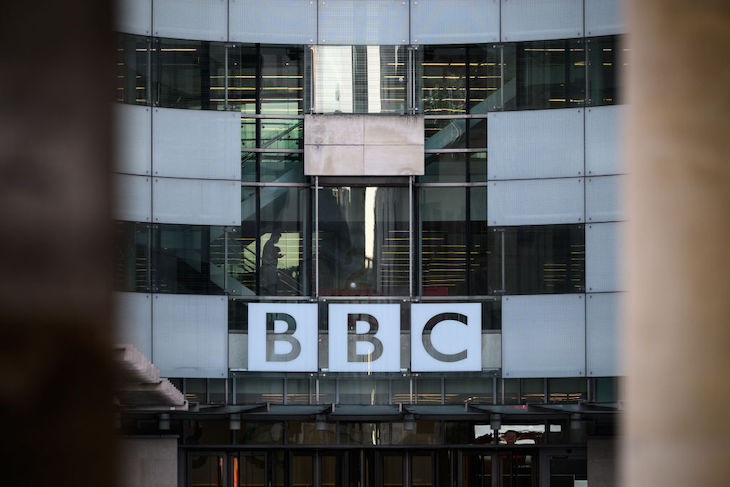Earlier this week, Kim Yo Jong proclaimed that North Korea has no intention of abandoning its nuclear weapons. ‘If the US and its vassal forces continue to insist on anachronistic denuclearisation… it will only give unlimited justness and justification to the advance of the DPRK aspiring after the building of the strongest nuclear force for self-defence,’ she said, adding that North Korea’s nuclear status could ‘never be reversed by any physical strength or sly artifice’.
This may have been stating the obvious, but this declaration by Kim Jong Un’s vitriolic sister dashed any optimistic hopes that the arrival of a new administration in Washington could lead to Pyongyang treading one step along the path towards denuclearisation.
This does not mean that we should give North Korea what it wants
North Korea’s rapprochement with Russia – thanks only in part to the Ukraine war – has raised the price of any US-North Korea talks. As China continues to watch the relationship between Moscow and Pyongyang unfold – at a time when Chinese troops have been seen to be participating in Russia’s war – Beijing remains queasy about its neighbour’s growing nuclearisation. Nevertheless, it is willing to grit its teeth and bear the far lesser evil of the status quo. Even if another summit between Donald Trump and Kim Jong Un comes to pass, North Korea’s intention of giving away its ‘treasured sword’ will be even lower than in the past – not that it really had any intention of doing so in the first place.
Since its establishment as a state separate to the capitalist South Korea in 1948, the hermit kingdom’s foreign policy has revolved around the logic of behaving badly to reap rewards, whilst giving away as few concessions as possible. This strategy became even more pronounced after it conducted its first nuclear test in October 2006. The result was hardly something to write home about, but five more nuclear tests would soon follow.
After Kim Jong Un took power in December 2011, the country accelerated its quest to become a nuclear-armed state and gain de facto recognition as such by the international community. While they are still waiting to conduct a seventh nuclear test, Pyongyang has been advancing its nuclear and missile capabilities slowly but surely. All the while, its intention to come to the negotiating table – let alone put these capabilities on said table – has only plummeted.
For as long as the Ukraine war continues, North Korea will fuel Russia with artillery, missiles, and manpower, and will treat all these goods as mere cannon fodder. Pyongyang hopes that in return, it can receive financial and food assistance and, most importantly, advanced missile and military technology. Few details are known about whether any such technology has actually entered the North’s hands, but the fact that Kim Jong Un wants this technology more than anything else has been known long before Russia’s invasion of Ukraine in February 2022.
It is not just North Korea which has deployed troops to fight for Russia, sending an additional 3,000 troops at the end of March, further to its initial dispatch of 11,000 in October 2024. This week’s revelation by Ukrainian President, Volodomyr Zelensky, that at least 155 Chinese soldiers were aiding Russia’s efforts, caught the world by surprise. After all, China claims to be a ‘neutral’ actor in the war.
China has yet to send any organised troops and has kept tight-lipped about the heightened cooperation between Pyongyang and Moscow. Instead, Beijing’s acerbic Foreign Ministry spokespeople have doggedly repeated the same mantra, namely that the movement of North Korean troops in Russia’s direction is not Beijing’s business. In response to Kyiv’s claims that Beijing is aware of Chinese nationals fighting in the war, China offered a swift rebuke, calling on Ukraine to avoid making ‘irresponsible remarks’.
We do not know the exact origins of these Chinese soldiers, at least two of whom have been allegedly captured in eastern Ukraine. Instead of being sent under orders from the People’s Liberation Army, their involvement is more likely to be a result of Russia’s unofficial recruitment campaigns, skirting around official state-to-state ties.
As the wait for accurate information – which has hardly been at a premium on all sides during this now three-year war – commences, we must not lose sight of the bigger picture. China continues to enable Russia’s war by buying Russian oil and sending dual-use technologies to Russia, the latter of which accounts for over 80 per cent of Russia’s supply. What is more, Beijing also assists Pyongyang in evading sanctions, whether through illicit transfers of crude oil or hosting North Korean workers, many of whom endure conditions of slave labour in Chinese factories.
For all the middle kingdom’s vehement disdain for its northeast neighbour’s nuclear weapons, to claim that North Korea’s role in Russia is not China’s business would be a lie. China continues to engage behind the scenes in undermining international norms and institutions, even if it does not want to be seen by the West as doing so. Unlike China, Russia and North Korea have not been struck by Trump’s recent spate of tariffs. But even if Moscow and Pyongyang were to be dealt this economic blow, their behaviour would not change one iota.
By accusing the United States, South Korea, and Japan of being ‘lost in [a] past daydream’ in their calls for North Korea’s denuclearisation, Kim Yo Jong stressed not only that North Korea’s nuclear weapons and ambitions were here to stay, but that only North Korea – and not the West – can decide on Pyongyang’s foreign policies. This does not mean, however, that we should give North Korea what it wants and accept it as a nuclear state. For history has taught us – and will continue to teach us, as tensions between the West and China brew – that appeasing, even trusting, an enemy never ends well.







Comments